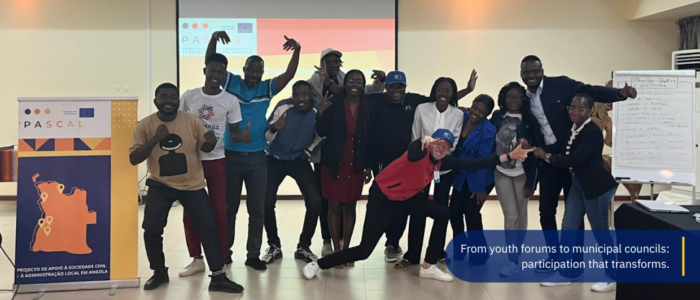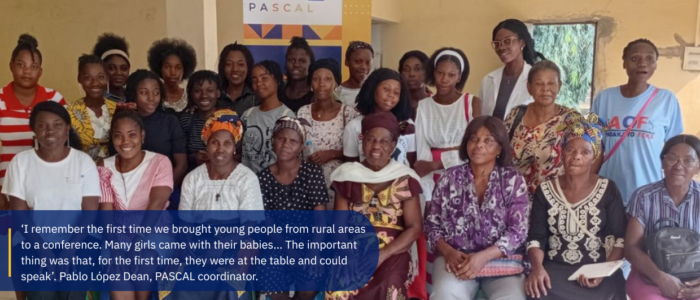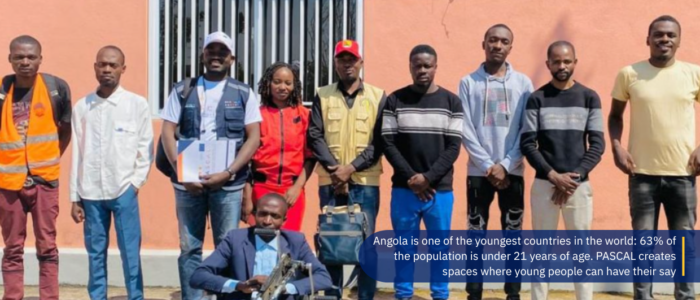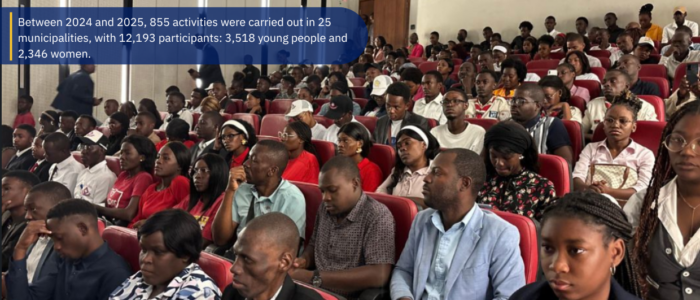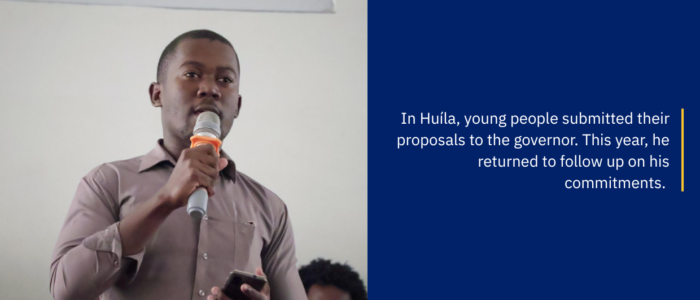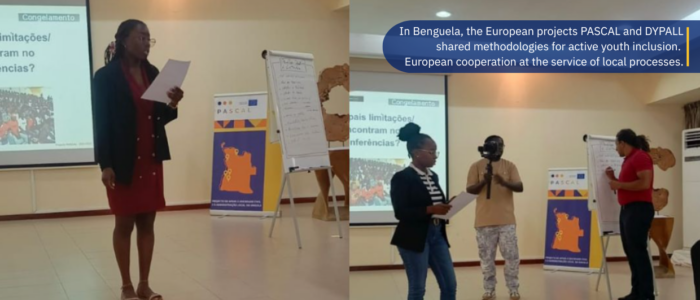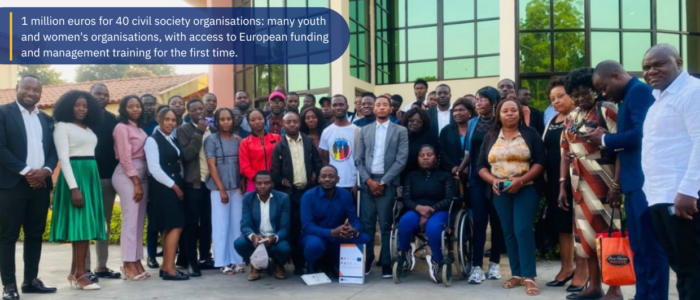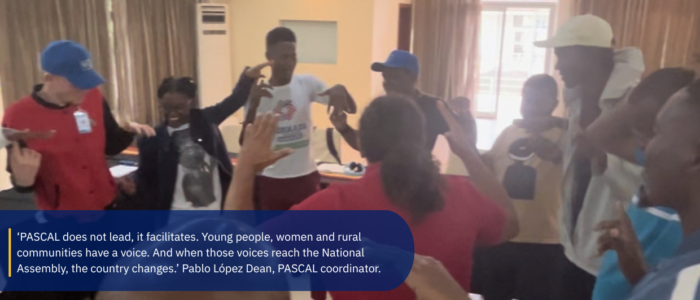-
01 October 2025
Category : Reportage
Young people no longer left out: the new voice of Angola
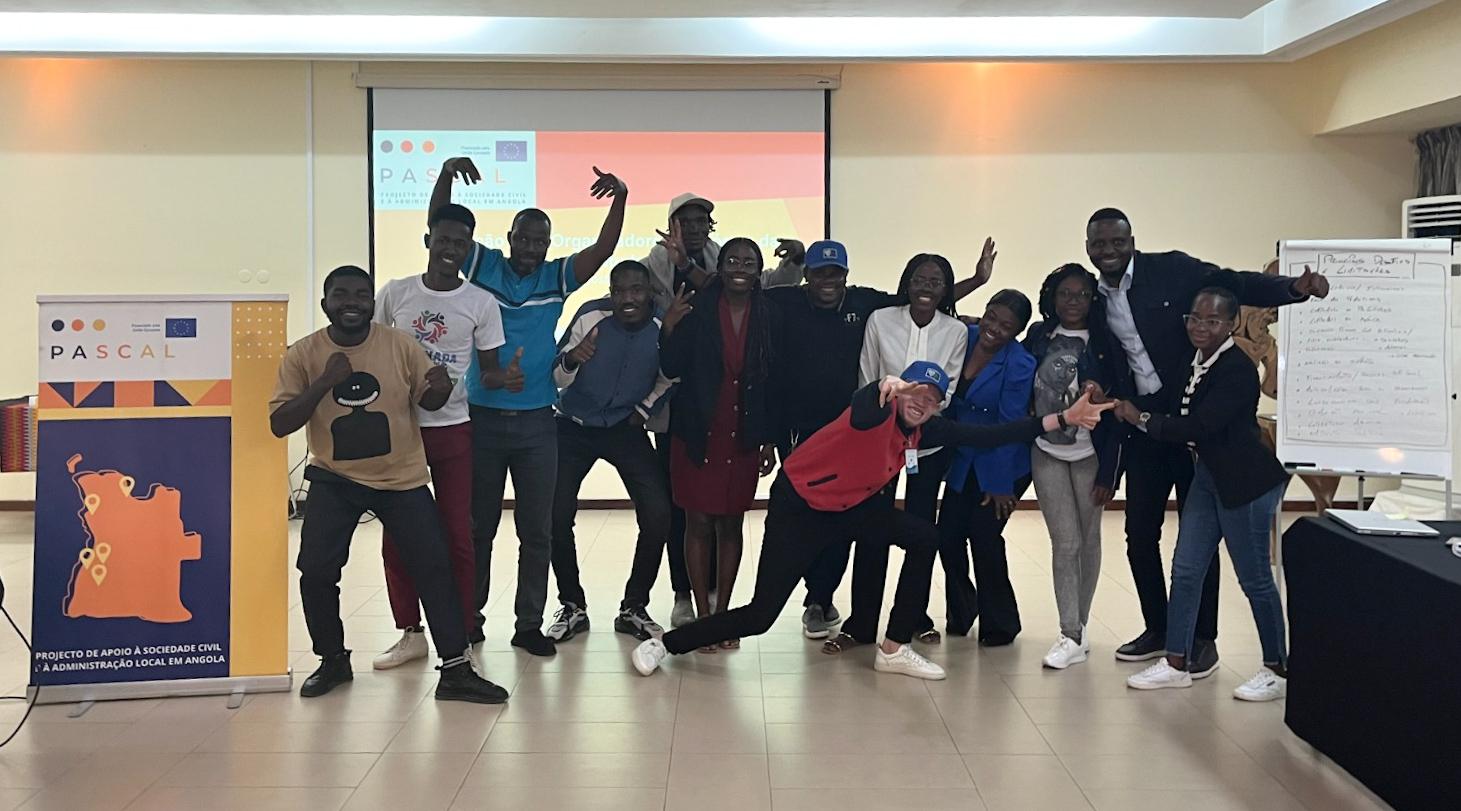
‘I remember the first time we brought young people from rural areas to a provincial conference. Many girls came with their babies. The children cried in the middle of the debates… and nothing happened. It was part of life, part of Angolan reality. The important thing was that, for the first time, these young women were sitting at the table and could speak,’ says Pablo López Dean, coordinator of the PASCAL project.
That image sums up the transformation that the project is promoting in Angola: opening up spaces for real, inclusive and unfiltered participation for a young, female and diverse civil society.
The PASCAL project (Support to Civil Society in Local Governance in Angola) is a European Union initiative that seeks to strengthen citizen participation in the country’s decentralisation processes. It is implemented through a European consortium led by FIAP and the Central Project Agency of Lithuania (CPVA), in close collaboration with the Angolan government through the Ministry of Territorial Administration and civil society organisations. Its mission is not to impose agendas, but to facilitate capacities, open spaces for dialogue and accompany the transition towards more inclusive and participatory governance with technical evidence.
Young people have their say
Angola is one of the youngest countries in the world: 64% of the population is under 25. But for years, young people have been marginalised from decision-making. PASCAL has created processes to change that.
Between 2024 and 2025, the project facilitated more than 855 activities in 25 municipalities, with the participation of 12,193 people in those organised by the focal points alone, of whom 3,518 were young people (29%) and 2,346 were women (19%). In addition, provincial youth forums were organised in the five provinces of intervention, bringing together 200–250 young people per meeting and representatives of municipal organisations in cascading dynamics that reached thousands more.
A clear example is the process carried out in the province of Huíla. ‘One of the most obvious results is the creation of provincial forums where young people were able to present their concerns and needs and deliver them in an official document to the authorities. In Huíla, for example, they submitted their proposals to the governor, who is participating again this year to follow up on his commitments,’ explains Teófilo Silvestre, a specialist in governance and public innovation at PASCAL.
At the same time, the project has sought to draw on international experiences. In Benguela, for example, training was provided in August for civil society organisations involved in the Provincial Youth Days, led by Bruno António, executive director of the European network DYPALL, a European platform that works to strengthen youth participation in local decision-making. The meeting focused on methodologies for the active inclusion of young people in governance processes, strengthening the capacity of Angolan CSOs to work with and for young people.
These types of exchanges demonstrate the added value of PASCAL and European cooperation: putting the knowledge of international public administrations and networks at the service of local processes, creating spaces for trust and dialogue between peers.
Young women learning to claim their place
Participation is not only youthful, it is also female. Analdina Nouemou, civil society support specialist at PASCAL, sums it up as follows:
“Many women did not know that participating in local councils was a right. After the training sessions, they now approach municipal administrations, ask questions and make demands. Even women in rural areas with young children have learned how to organise themselves into groups and take their proposals to the administration. That is a profound change.”
In addition, thanks to the €1 million grant fund, 14 civil society organisations, many of them youth and women’s organisations, have accessed European funding for the first time, learning how to manage resources and strengthening their institutional self-esteem.
From the foundation to the future
The impact of PASCAL cannot be measured solely in numbers—although thousands of young people and women are already involved—but rather in processes that sow the seeds for the future. Civil society is becoming better organised, the authorities are listening, and, little by little, the historical silence of marginalised groups is being broken.
“PASCAL has built trust between institutions and civil society. It has professionalised local administrations and placed women and young people at the centre of governance. Today, citizen participation in Angola is more inclusive than ever,” says Teófilo.
In Pablo’s words: ‘PASCAL does not lead, it facilitates. They provide the voice: young people, women, rural communities. And when those voices are heard in the National Assembly or in government, the country changes.’
✍🏽 Laura Cárdenas, communications consultant for this PASCAL Project activity
PHOTO GALLERY:
The views and opinions expressed in this blog are the sole responsibility of the person who write them.




